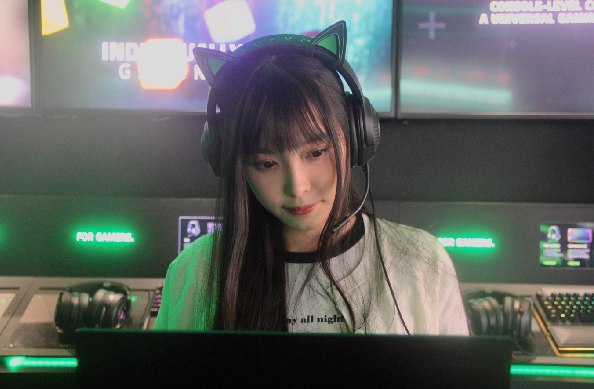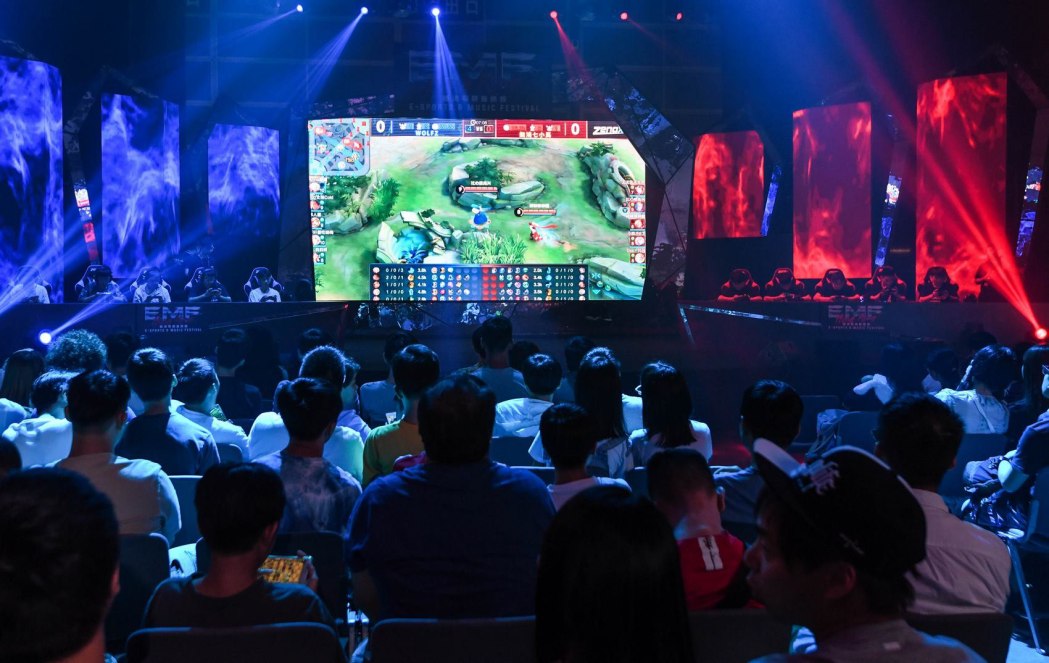By Salomé Grouard
With at least 225 video games set in the territory, Hong Kong is the favourite location of many designers. And why wouldn’t it be? The city is a singular sight, with densely-packed streets, modern skyscrapers and a unique southern Chinese heritage. It’s the perfect backdrop.
Paradoxically, the city’s professional gaming community lacks dynamism compared to the success of esports in the rest of East Asia. South Korea (with Jaedong, Moon, Boxer, Flash, Faker, MC), Japan (with Daigo) and mainland China (with Team Newbee or Invictus) dominate international competitions thanks to the support of their communities, of local companies and of their governments. Hong Kong finds itself left behind.

Many explanations are advanced, such as the city’s work culture and relative lack of free time, but the reason why Hong Kong never clicked with professional gaming is still largely a mystery.
“Esports was truly never popular here,” Initium’s e-journalist Alison Jing tells HKFP. “Even though it got better in the past years, there has been no significant investment by companies, which prevents the scene from being dynamic. The majority of players have great difficulties making a stable income. And in terms of gender, it’s even more unfair.”
If Hong Kong’s male players are starting to make a name for themselves internationally and beginning to earn a living (such as LOFS, Ryan Chow, Blizzard and Hotdog29), women face a tougher struggle. More than anywhere else in East Asia, the local scene looks closed to female gamers.
“As a matter of fact, esports have never been very welcoming to women,” said Jing, “but because of the very small size of the Hong Kong scene and its lack of professional structure, women are even less treated as ‘pro’ players. That’s linked to sexism.”
Part of the problem, according to Jing, is the games themselves: many are made by men for men, and the female protagonists they create are part of the selling point. Japanese games, for example, are very popular in Hong Kong but also notorious for their depictions of women.

“It’s undeniable that video games sexualise women,” she said. “Most of the female characters have huge breasts, are dressed very sexily, are very submissive, have no ambition in their life and are just here to help the main male character achieve his mission. They often die at some point, to be replaced by another girl quickly.”
Games made for women don’t always help restore the balance. As Jing explains, many “girly-ish” games arrived in Hong Kong in recent decades, including interactive novels. “They were really popular, but the storyline was often nothing more than living a love story. It annoyed me so much I stopped playing them.”
By being interchangeable, meeting unrealistic beauty standards and lacking personality and ambition, the female protagonists in e-games are often mere fetish figures. This explains the rise of cosplaying in Hong Kong, as well as the visual identity which female gamers are developing on social media. Jing confirmed: the only way to feel integrated in a community where you’re often perceived as an intruder is to fit the stereotypes imposed on you.
In Hong Kong, female gamers are victims of this paradox: they are expected to fit all the superficial criteria but are looked down on when they do. Fortunately, there are many game changers.
Team Panda Cute
Deer Chan is known as Hong Kong’s first female player and its most famous female streamer. As the captain of Panda Cute, she won multiple championships and awards playing League of Legend (LoL). However, her skills have never been enough to silence her critics. Even though she’s followed by more than 50,000 people on Twitch and was Hong Kong’s only representative at the Olympic Committee eSports Forum in 2018, she is still not considered a “pure player” by the community.

“As a woman,” she said, “I get bullied a lot. People just come to my live streams to criticise me for no reason and especially to criticise my appearance. In the beginning, it really made me sad and angry. I was shouting back at them. But now, I’m trying to ignore it. It became part of the job”.
While Deer Chan values her public image with her 144,000 followers on Instagram, she’s tired of not getting adequate recognition for her skills. Now she has retired from competitive gaming and focuses mostly on casual gaming, on promotions, and on making the Hong Kong scene more welcoming to women.
NanaSe is another pro-female gamer from Hong Kong. She specialises in King of Fighters (KoF), which she has been playing competitively for more than a decade. Over the years, she has found herself the only woman defending Hong Kong’s colours in international events.

Unlike Deer Chan’s case with League of Legends, there are no all-female competitions for KoF, because almost no women play it. NanaSe has always been forced to compete with men, which hasn’t always been easy.
“When I try to play online with international gamers, a lot of them categorically refuse to play against me because I’m a woman. Maybe they don’t want to lose to a woman? Maybe they think I’m really bad? The situation is so ridiculous that it feels unreal.”
How can Hong Kong value its female gamers and make the scene more accessible to them? Deer Chan and NanaSe agree: investment could change everything, starting with skill levels.
“People don’t invest in female players in Hong Kong,” said Deer Chan, “they don’t want to take us seriously. As a result, male players are technically and skill-wise a lot more advanced than us, and we can’t compete with each other. I’m sure that female players are also more criticised because of that.”

All the teams contracted in Hong Kong’s best known e-companies – such as Talon Esport and Hong Kong Esport – are all-male. They benefit from training and from a basic salary. In comparison, Deer Chan and Panda Cute were the only semi-professional female teams in Hong Kong.
Deer Chan said she had contemplated moving abroad to continue her career but realised that female foreign players were more skilled than her. That’s why she hopes for more competition in Hong Kong. “If there were more female competitions here, we would all be stronger and more skilful. We would be more recognised at international level.”
NanaSe said she would have more chance of becoming a full-time pro-gamer if she left Hong Kong. “I can’t live as a pro-gamer in Hong Kong, so I have a full-time job. I can only practise at night so I don’t sleep much. I have no other choice, because all the females I’m competing with are full-time pro-gamers. If I want to win, if I want to earn money, I need to practise during my free time.”

Fortunately, their voices are being heard. Female e-athletes have been getting more recognition globally and Hong Kong is no exception.
“The demographic of my fans has been evolving a lot these past years,” explained Deer Chan. “Men used to represent most of my followers but they are slowly decreasing to 70 per cent. It’s a proof that there’s change, right?”
As the gamer explains, more and more Hong Kong female players are joining the casual gaming scene and it won’t take for ever before they storm the pro-scene. “My goal for now isn’t to level up the female pro-gaming level in itself. I want to make gaming a safer place for females first, I want them to play more. And after that, we will talk about raising the level of competition.”
Support HKFP | Policies & Ethics | Error/typo? | Contact Us | Newsletter | Transparency & Annual Report | Apps
Help safeguard press freedom & keep HKFP free for all readers by supporting our team

LATEST FROM HKFP
HKFP has an impartial stance, transparent funding, and balanced coverage guided by an Ethics Code and Corrections Policy.
Support press freedom & help us surpass 1,000 monthly Patrons: 100% independent, governed by an ethics code & not-for-profit.










